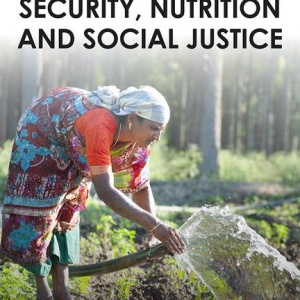
This book reframes the debate around water and food security, focusing on the rights of marginalised people instead of only discussing irrigated agriculture.
Publisher’s summary
This book is the first comprehensive effort to bring together Water, Food Security and Nutrition (FSN) in a way that goes beyond the traditional focus on irrigated agriculture. Apart from looking at the role of water and sanitation for human well-being, it proposes alternative and more locally appropriate ways to address complex water management and governance challenges from the local to global levels against a backdrop of growing uncertainties.
The authors challenge mainstream supply-oriented and neo-Malthusian visions that argue for the need to increase the land area under irrigation in order to feed the world’s growing population. Instead, they argue for a reframing of the debate concerning production processes, waste, food consumption and dietary patterns whilst proposing alternative strategies to improve water and land productivity, putting the interests of marginalised and disenfranchised groups upfront.
The book highlights how accessing water for FSN can be challenging for small-holders, vulnerable and marginalised women and men, and how water allocation systems and reform processes can negatively affect local people’s informal rights. The book argues for the need to improve policy coherence across water, land and food and is original in making a case for strengthening the relationship between the human rights to water and food, especially for marginalised women and men. It will be of great interest to practitioners, students and researchers working on water and food issues.
Reference
Mehta, L., Oweis, T., Ringler, C., Schreiner, B. and Varghese, S., 2019. Water for Food Security, Nutrition and Social Justice. Routledge, Abingdon and New York.
Read more here. See also the Foodsource building block What is food security?







Post a new comment »